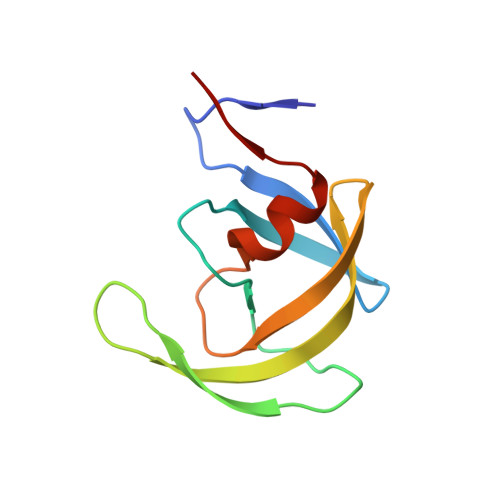2-Pyridyl P1'-substituted symmetry-based human immunodeficiency virus protease inhibitors (A-792611 and A-790742) with potential for convenient dosing and reduced side effects.
Degoey, D.A., Grampovnik, D.J., Flentge, C.A., Flosi, W.J., Chen, H.J., Yeung, C.M., Randolph, J.T., Klein, L.L., Dekhtyar, T., Colletti, L., Marsh, K.C., Stoll, V., Mamo, M., Morfitt, D.C., Nguyen, B., Schmidt, J.M., Swanson, S.J., Mo, H., Kati, W.M., Molla, A., Kempf, D.J.(2009) J Med Chem 52: 2571-2586
- PubMed: 19323562
- DOI: https://doi.org/10.1021/jm900044w
- Primary Citation of Related Structures:
3GGA, 3GGV, 3GGX, 3S85 - PubMed Abstract:
A series of symmetry-based HIV protease inhibitors was designed and synthesized. Modification of the core regiochemistry and stereochemistry significantly affected the potency, metabolic stability, and oral bioavailability of the inhibitors, as did the variation of a pendent arylmethyl P3 group. Optimization led to the selection of two compounds, 10c (A-790742) and 9d (A-792611), for advancement to preclinical studies. Both compounds displayed low nanomolar potency against wild type HIV in the presence of human serum, low rates of metabolism in human liver microsomes, and high oral bioavailability in animal models. The compounds were examined in a preclinical model for the hyperbilirubinemia observed with some HIV PIs, and both exhibited less bilirubin elevation than comparator compounds. X-ray crystallographic analyses of the new cores were used to examine differences in their binding modes. The antiviral activity of the compounds against protease inhibitor resistant strains of HIV was also determined.
Organizational Affiliation:
Antiviral Research, Global Pharmaceutical Research and Development, Abbott Laboratories, 100 Abbott Park Road, Abbott Park, Illinois 60064, USA. David.DeGoey@abbott.com















